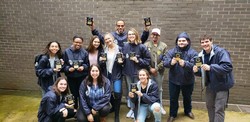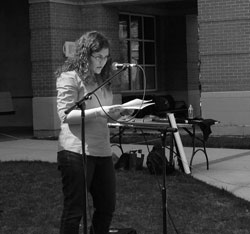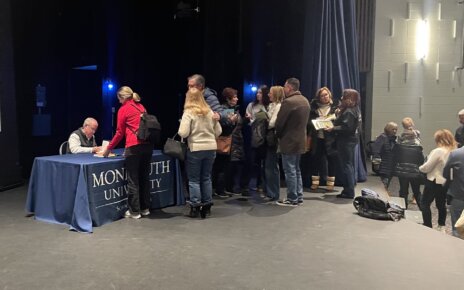The University held a panel discussion of COVID-19’s impacts on the education system, and how the virus is furthering the gap in racial equity among students, on Wednesday, Apr. 7.
Panelists included Zaneta Rago-Craft, Director of the Intercultural Center; Walter Greason, Chair of the Educational Leadership program; Markus Rodriguez, Director of the Office of Diversity, Equity, and Inclusion for Long Branch Public School District; and Angello Villarreal, ESL teacher in Long Branch Public Schools and NAPDS Antiracism Committee member.
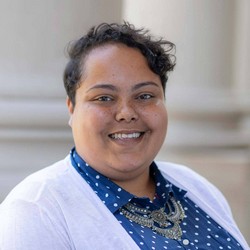 “We’re not just in a health pandemic,” said Ra-Craft. “We’re also in the middle of a very long standing but newly heightened racism pandemic.”
“We’re not just in a health pandemic,” said Ra-Craft. “We’re also in the middle of a very long standing but newly heightened racism pandemic.”
“It’s important to remember that the system of education does not operate outside of systems of other inequities,” Rago-Craft explained. “When students are coming to class, they’re coming with everything that’s happening around them. We cannot remove the academic nature from the emotional nature of being in a classroom.”
Rodriguez continued the discussion by speaking about inequity with respect to technology. “Long Branch has made some gains in that regard, and thankfully the relief funding that’s coming from the government will almost surely guarantee that every single student in Long Branch will have access to wifi and a device by September,” he said.
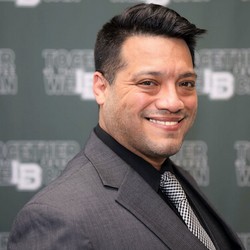 ““As educators, we need to go beyond the lesson and see how students are emotionally. Having these conversations is really important,” said Angelo Villarreal, Spanish and ESL teacher at Long Branch High School. “Once or twice a week, I tell my students to put their pencils down and turn their cellphones off so that we can talk about how they’re doing.”
““As educators, we need to go beyond the lesson and see how students are emotionally. Having these conversations is really important,” said Angelo Villarreal, Spanish and ESL teacher at Long Branch High School. “Once or twice a week, I tell my students to put their pencils down and turn their cellphones off so that we can talk about how they’re doing.”
“You have to be ready to listen to the student and ask them probing questions about how they’re actually doing. It adds a lot of opportunities to identify where support could be added,” explained Ringo-Craft. “This approach benefits all students, but the pandemic disproportionately affects our students of color and so do the interventions.”
This effort is particularly important on a local scale. “New Jersey is one of the most diverse states in the country. We’re also one of the most racially and economically segregated, particularly within our schools,” said Ringo-Craft.
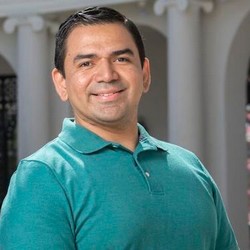 “There’s so much to uncover in New Jersey alone about the way that desegregation was done in a way that reinforced traditions of white authority in schools and local government that people are clueless about,” said Dr. Walter Greason, Associate Professor and Chair of the Department of
“There’s so much to uncover in New Jersey alone about the way that desegregation was done in a way that reinforced traditions of white authority in schools and local government that people are clueless about,” said Dr. Walter Greason, Associate Professor and Chair of the Department of
Educational Counseling and Leadership. “I believe that small interactions in the aggregate over time have a tidal effect. They build up into this wave where they become viral and lots of people change what they can afford for themselves and take advantage of.”
Rodriguez went on to explain how April is an important month for Long Branch Public Schools. “In April of 1947, the integration process began in Long Branch. When Long Branch was established in 1884, there was a school called the Liberty Street School, which was built for the education of African American children,” said Rodriguez. “Thanks to pressure from the local chapter of the NAACP, the school board integrated that school in April of 1947, and so Long Branch began its long and beautiful journey toward equity and equitable education.”
 This motion for desegregation was not entirely positive. In some ways, it was a major setback for equality efforts. “By dismantling places like Liberty Street School, we never actually replaced the actual effect of how we built places to empower young people and empower their families,” explained Greason. “We’re still struggling with this today.”
This motion for desegregation was not entirely positive. In some ways, it was a major setback for equality efforts. “By dismantling places like Liberty Street School, we never actually replaced the actual effect of how we built places to empower young people and empower their families,” explained Greason. “We’re still struggling with this today.”
“Inclusion can’t mean assimilation. There’s a lot of deficit thinking around difference and a lot of forced assimilation that requires you to lose who you are in order to feel included. Students being who they are is what makes our learning environments so rich,” said Ringo-Craft.
“School systems should be the safe space where students can be who they are,” added Villarreal. “I try to make them feel welcome and give them the best environment I can.”
Students aren’t the only ones struggling. “I’m a big proponent of remembering that you cannot pour from an empty cup. Our educators and administrators also need to take care of themselves in this pandemic, especially if we want to be there for our students,” said Ringo-Craft. “Comradery and rest are incredibly important, particularly for our educators of color in this time.”
IMAGE TAKEN from Pexels.com
PHOTOS COURTESY of Monmouth University


